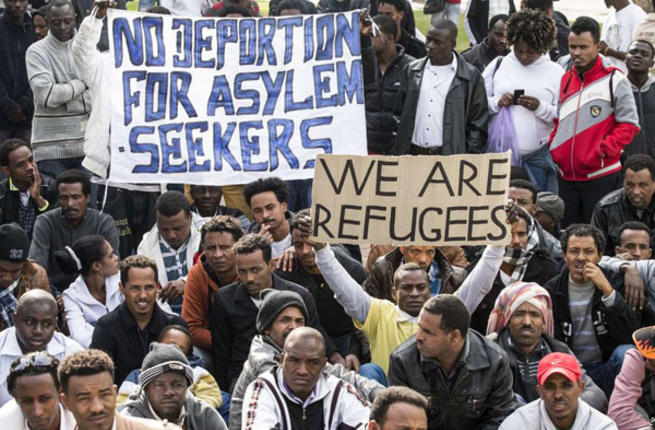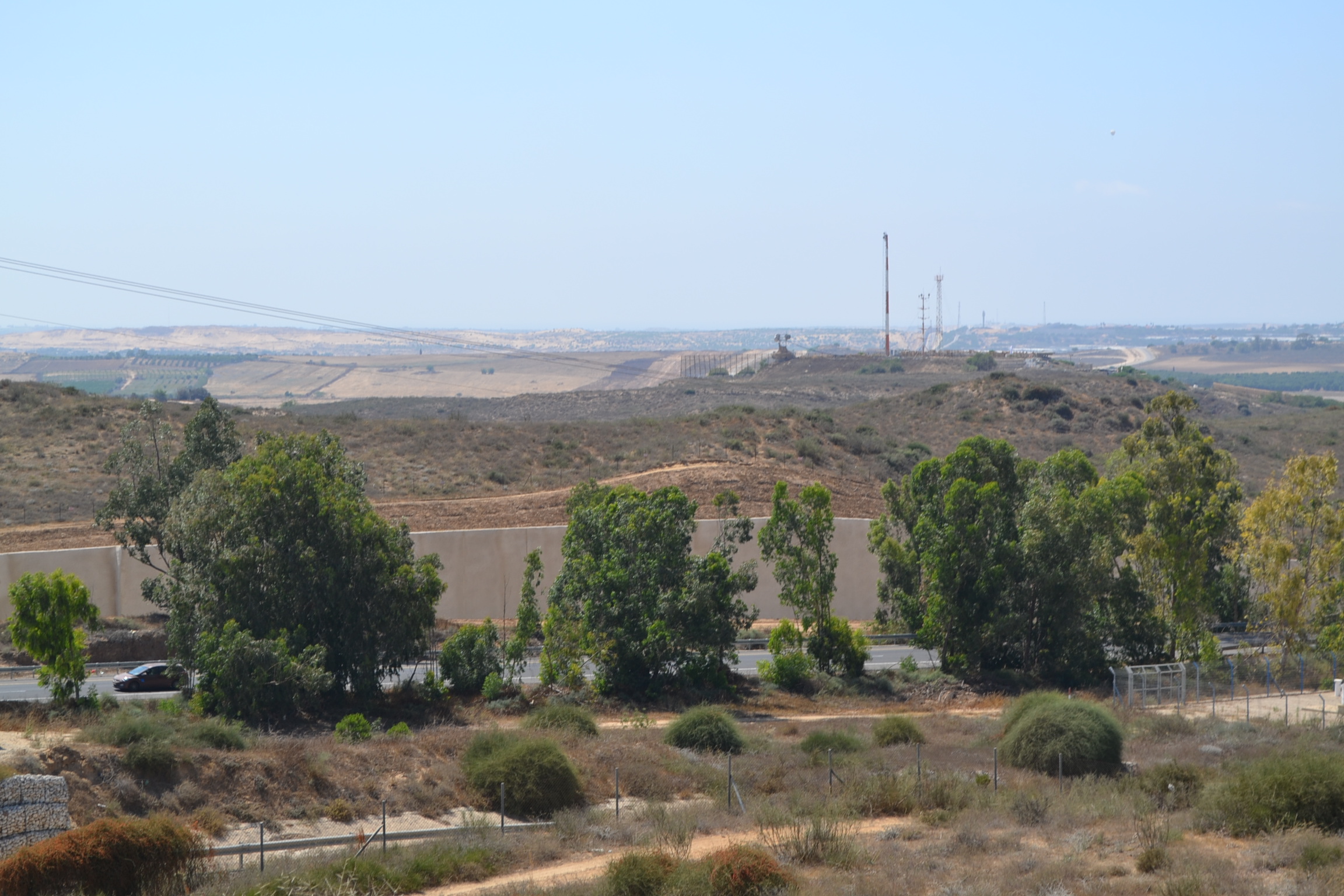Israeli Prime Minister Binyamin Netanyahu (Likud) said Monday that Western nations will absorb African asylum seekers from Israel. The announcement came after Jerusalem signed a deal with the United Nations High Commissioner for Refugees, canceling Netanyahu’s mass deportation plan for the more than 38,000 people from Sudan and Eritrea currently living in Israel.
Speaking at a news conference, Netanyahu said the plan to deport asylum seekers to “a third country” was scrapped when “it became clear that the third country did not meet the conditions,” adding that this country “did not withstand the pressure.”
Interior Minister Aryeh Deri (Shas) added that following tough negotiations with the UNHCR, Israel had agreed to resettle one asylum seeker in a Western country for every asylum seeker awarded temporary residency status in Israel. In a statement, the Prime Minister’s Office gave these numbers as 16,250 each.
According to sources in the Prime Minister’s Office, the deal had been approved by Attorney-General Avihai Mendelblit and accorded with international law. The office further said that the UN – and not Israel – will conduct negotiations with the Western governments involved in the deal.
The new agreement, the office said, “will allow for a larger number of migrants to leave Israel than the previous plan, and under the auspices of the UN and the international community.”
While this deal offers a more humane approach to the asylum seeker issue than any previous plan, the approach is still flawed as it’s still driven by a problematic paradigm that necessitates limiting the number of non-Jews in Israel. As a gentile population not possessing any baggage of conflict with the Jewish people, African asylum seekers have presented Israel with an exceptional opportunity to discover the ideal role for non-Jews living in a Jewish country. But to seriously struggle with issues of this nature, Israeli society requires a certain level of maturity.
Within the current paradigm, Israelis who feel connected to Jewish history and care about the existence of a Jewish state have trouble not viewing the Africans as a threat. Those less connected to Jewish identity and psychologically living according to the values of contemporary Western civilization are obviously more sympathetic to the asylum seekers but have no sympathy for their opposition – who they view as shockingly racist and inhumane.
The latter group might superficially appear as the “better Israel” but it represents a minority sector that is rapidly losing its ability to influence the nation due to being so out of touch with the Israeli street and so widely viewed by the masses as privileged hypocrites and traitors.
The only way to make the Israeli majority feel secure enough to care for the oppressed stranger is to fully address Jewish nationalist concerns. This would require us to define what values actually makes a state “Jewish” beyond demography and superficial national symbols so we can practically apply those values in ways that enfranchise non-Jews in our society.
The goal at this point in Israel’s national development must be to pursue policies that take responsibility for the Other as genuine expressions of Jewish identity that actually strengthen rather than weaken Israel’s Jewish character. From this perspective, sending African asylum seekers to the West might just be avoiding the issues we need to confront as a society. Hopefully, we can do better with those our government allows to remain.





